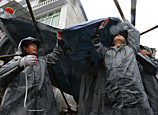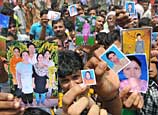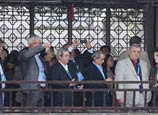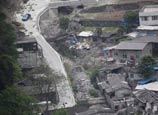
To make sure the plan is scientific and objective, third-party organizations, such as the Shanghai Academy of Social Sciences, will be invited to help screen the proposals collected from the public.
"We guarantee transparency throughout the procedure," Ding said at a news conference in Shanghai on Thursday.
"We understand the public's expectations on the rule of law and on the lawmaking process, as well as their passion to be involved," he said. "We will try our best to collect the views of the public and address their concerns."
Zhang Yu, 27, a designer in Shanghai, said he was glad to see the public has an opportunity to have their voice heard and one regulation he thinks is needed concerns traffic, in particular punishment for jaywalking pedestrians.
"I hope the opinions collected from the public can be truly reflected in lawmaking rather than just going through the formalities," he added.
The Shanghai legislature on Thursday also released draft regional laws and regulations it is about to revise, discuss, study or vote on, in 2013. These laws cover sectors including the protection of minors, mental health, promoting collective wage talks and anti-domestic violence.
Centers for the elderly is a priority for Ding.
Shanghai has more than 630 centers for the aged that offer a total of 100,000 beds to senior residents.
By the end of 2012, Shanghai had 3.67 million registered people aged 60 or above, accounting for 25.7 percent of its total registered population, official figures show.


Latest development of H7N9 in China[Special]


















![]()
